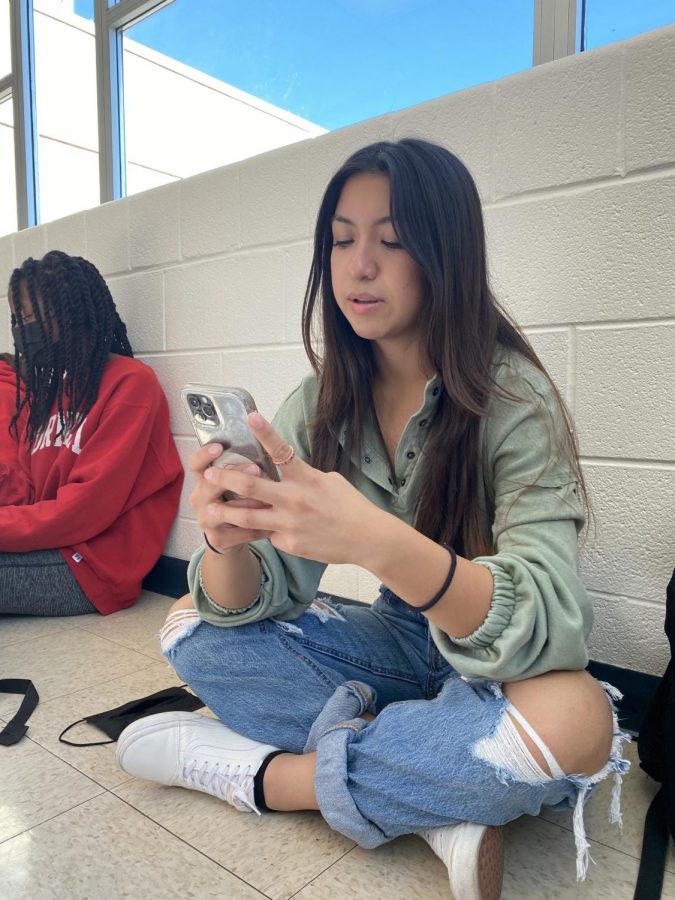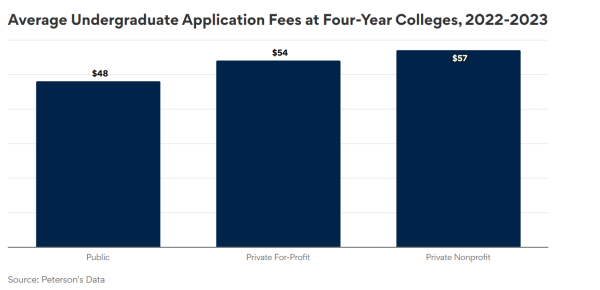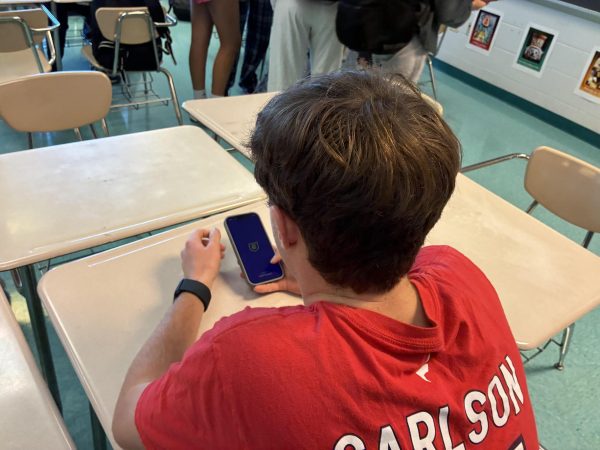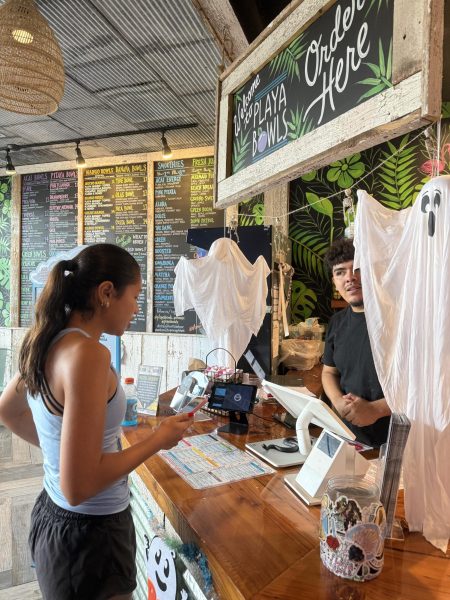Social media allows students to connect with friends, learn new things, but do benefits outweigh the risks?
Senior Rizel Serrano opens Snapchats from friends during lunch.
After a long day of tests at school and an important soccer game, senior Rizel Serrano gets home and finally gets a chance to talk to her boyfriend, who lives in Guatemala, on Snapchat, a popular social media app for sending photos. While Serrano enjoys Snapchat, both negative and positive effects of social media on teenagers exist, but knowing how to control the possible determinants allows teens to reap the positive benefits and avoid the negative ones.
The most used social media apps by teens are Snapchat, Instagram and Tiktok. A way that social media benefits teenagers is by allowing them to connect with their friends from school who they do not see throughout the day. “I talk to friends through social media,” sophomore Travon Moorer said.
Another positive effect of social media is that it can provide a place for entertainment and learning. This can come through videos or photos online. I can learn “information that I would not normally get,” freshman Elizabeth Griffin said.
One negative effect of social media is it can make teenagers feel excluded when they see a picture of their friends hanging out without them. Social media can “add to my fear of missing out,” Serrano said.
Social media has also been proven to correlate with lower self-esteem, less body positivity and lower life satisfaction. This happens more often when it is used passively (i.e. just scrolling and looking at other people) instead of actively (i.e. posting and talking with others). “I personally do not follow celebrities because I know it could have a negative effect on my body image and make me compare myself,” Serrano said.
Another negative effect of social media is the possibility of online bullying and peer pressure. When used in the wrong ways, social media makes other people feel bad about themselves or pressured to do things. “People let themselves get carried away online, behind a screen” and they think that it has “no consequences,” Moorer said.
Social media can also take time away from other activities and be distracting to teens when trying to get work done. When teens’ screen time continues to increase, they get less sleep. “Nighttime social media use and emotional investment in social media … is linked with worse sleep quality,” according to Mayo Clinic.
Another of the positive effects of social media is that it allows friends to compliment each other’s photos when they post. On Instagram, when someone posts, their friends can comment on their post with positive things. I use social media “to boost up my friends’ confidence,” Serrano said.
Parents often have a difficult time weighing the benefits and harms of social media when deciding if it is right for their children. “My parents won’t let me have social media because they say it’s not safe,” Griffin said.
Your donation will support the student journalists of Thomas S. Wootton High School. Your contribution will allow us to purchase equipment and cover our annual website hosting costs.







![Editors-in-Chief Ahmed Ibrahim, Helen Manolis, Cameron Cowen, Alex Grainger, Emory Scofield, Hayley Gottesman, Rebekah Buchman and Marley Hoffman create the first print magazine of the year during the October press days. “Only a quarter of the schools in MCPS have programs that are like ours, a thriving, robust program. That makes me really sad. This is not just good for [the student journalists] to be doing this, it’s good for the entire community. What [student journalists] provide to the community is a faith in journalism and that continues for their lifetimes," Starr said.](https://woottoncommonsense.com/wp-content/uploads/2025/10/wmpoFTZkCPiVA3YXA4tnGoSsZ4KmnKYBIfr18p3l-450x600.jpg)